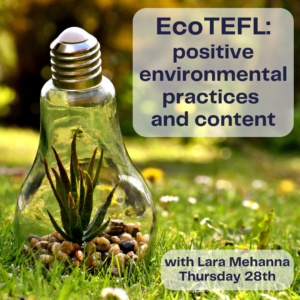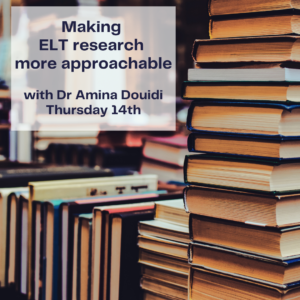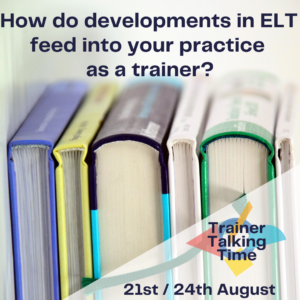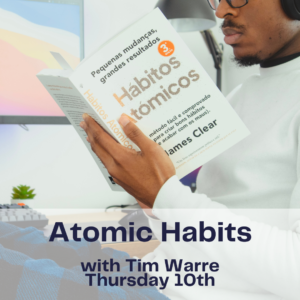How do you find out about developments in ELT?
Google Scholar – and one trainer mentioned how having a PhD helps you to develop the skills to skim/scan academic articles to find what you need. We also highlighted how theory and ‘behind the scenes’ information is more useful than the quick tips and listicles whcih come up more frequently in regular searches.
Being a part of Communities of Practice (CoPs) which are more researchers than teachers. Calls for papers tend to be more forward-looking, which could be quite overwhelming for teachers, but these are developments which will be coming in five years’ time.
BAAL (British Association for Applied Linguistics) has a research SIG (Special Interest Group).
One trainer suggested asking questions on social media, people will tend to share links.
Edutopia – a fantastic resource, you can sign up for a newsletter in an area that interests you, it has practical activities to put research into practice with different levels of teacher experience.
Facebook offers a lot in terms of professional development, but there is a lot of information overload and competing ideas. People suggested the following Facebook groups:
An exam-focused trainer said she follows exam boards and publishing houses who do exams. She mentioned that TOEFL format changed in July so there is a lot of information about that in North American forums.
Another trainer is taking the NILE Trainer Development course and said a lot of what she’s reading is ‘good old-fashioned psychology, human nature stuff that hasn’t really changed’. If you’re thinking about the course, Rachel Tsateri has a great series of blogposts covering her experience.
What makes an expert teacher? Trainers mentioned being interested in motivation and how to integrate socio-cultural dimension into their own practice – rather than looking at language skills. Similarly, moving away from a blinkered ELT/language focus, other people are looking at teaching in general, rather than a specific focus on ELT, e.g. John Hattie. However, people who are interested in SLA/ALA, might argue that we do need that more focused input.





